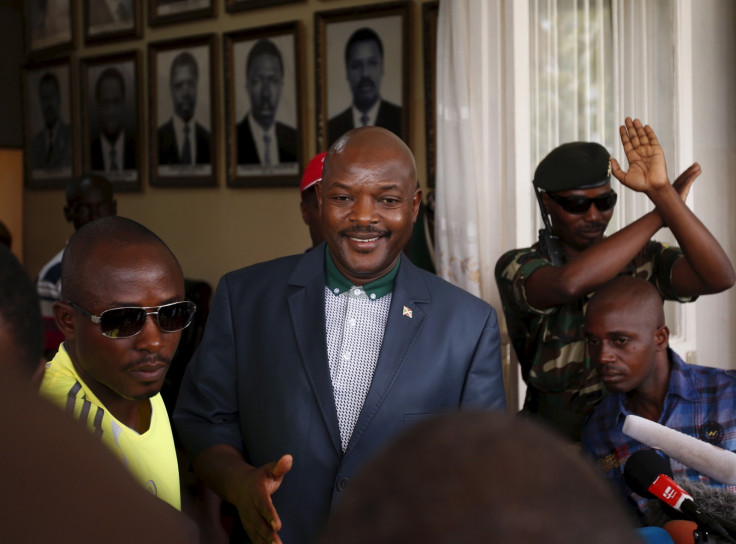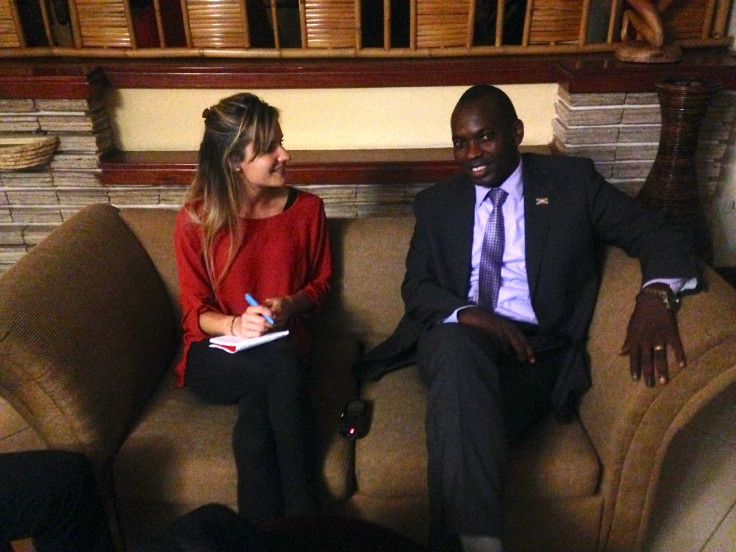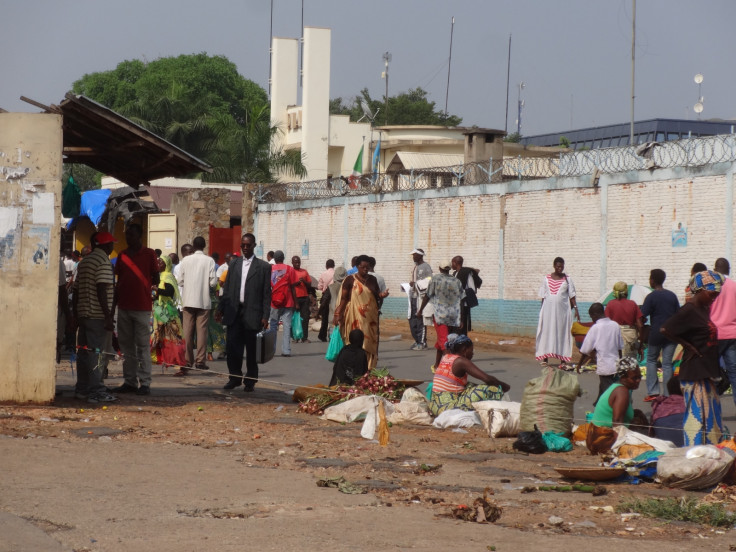Burundi: President satisfied by election results but would have liked to do better, says adviser

Burundi's president Pierre Nkurunziza was satisfied by the presidential elections results, which were announced in the capital Bujumbura on 24 July, but would have preferred to do better in the polls, his adviser has claimed.
Nkurunziza won the elections with almost 70% of the vote – followed by opposition leader Agathon Rwasa who won 18.99% of votes – securing a third term, that Nkurunziza's opponents claim violates a 2006 peace deal.
"The president is satisfied by the results, and would have hoped to do better than that," presidential adviser Willy Nyamitwe exclusively told IBTimes UK in a capital hotel minutes after the results were announced.
"But considering the climate in which we were during these elections, I think that these results are first and foremost a response to the international community which believed that the Burundian people didn't want him (Nkurunziza). At least, this shows that people wanted him, and the turnout says that too."
As it announced the victory of the ruling CNDD-FDD party's candidate, the electoral commission (CENI) confirmed turnout was 73%, despite calls to boycott from the opposition.
Nymitwe added: "If you tell people not to go and vote and if we had 15% or 25% turnout, then we would acknowledge that maybe Burundians are tired, that they don't want us, or the president."

No street celebrations
Apart from a few car honks, the streets of the capital remained peaceful throughout the evening, and there were no scenes of joy, or for that matter, any displays of anger.
For Nyamitwe, the silence can be explained by weeks of insecurity in the run-up to the elections.
"According to the results for Bujumbura town, you can see that the turnout is very low (29.75%). So you will not see people in the streets running. For security reasons and to avoid upsetting others, people are calm tonight," the adviser said.
On the ruling CNDD-FDD party side, supporters were celebrating "but at home".
"They are meeting around a drink with their friends. Some are opening champagne, others beers, depending on their means. That's how people within the power are living this victory."
Since 2005, when Nkurunziza was elected for the first time, the CNDD-FDD has organised a day of celebrations between one and two months after the announcement of the election results. This year will be no different, Nyamitwe said.

News plans for Nkurunziza's government
On the day of CENI's announcement, Burundi elected its senators. Before Nkurunziza can set up his new government, both the National Assembly and Senate must be constituted by 27 July.
"By 26 August, the president will have taken the oath in front of both chambers. He will have one or two days before announcing the formation of his new government," Nyamitwe explained.
Once the government formed, its priority will be to boost production.
"We already have plans to revive the economy, after we faced a number of shocks including this crisis, a financial market implosion and weather-related catastrophes that pushed us to take a step back and change the orientation of our policies," the adviser said.
Re-opening the Burundian dialogue
Another priority will be to re-open dialogue between the government, opposition parties and civil society representatives over questions relating to security, the return of refugees – which Nyamitwe estimates at 1,500 on average per day – and the idea of a government of national unity.
The government failed to turn up at crisis talks facilitated by the Ugandan President Yuweri Museveni days before the elections.
"We marked a pause in that dialogue, but it will be re-launched. Then the government will set out time for people to exchange so that they understand that the country is not falling into war, but is actually going forward with its development."
© Copyright IBTimes 2024. All rights reserved.






